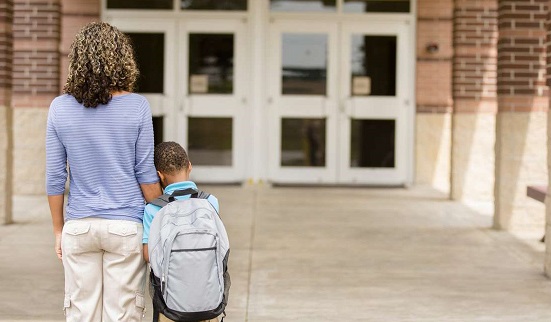Addressing children’s fears and anxieties related to school
For children, the beginning of a new school year can be an exciting moment, but it can also be a time filled with fears and anxieties about the next year.
These emotions are completely normal and might range from concerns about schoolwork and friendships to anxieties about being apart from loved ones.
To ensure that children feel safe and confident as they begin their educational journey, it is our responsibility as parents and carers to identify their worries and respond to them with empathy and support.
Gaining an Understanding of the Fears and Anxieties Children Experience Anxiety brought on by the anticipation of being parted from one’s parents or primary carers is referred to as separation anxiety and is common in young children. In order to make up for this:
Start with brief intervals of time apart and work your way up to longer and longer periods of time.
Establishing a routine for saying good-bye will bring both comfort and certainty.
Give them the assurance that you will come back.
Concerns Regarding Academics: As youngsters get older, they could develop a phobia of the intellectual problems they face. To assist them in:
To foster a growth attitude in your students, stress the importance of learning from one’s failures as part of the educational process.
When necessary, provide academic support and resources to students.Instead than focusing on your academics, prioritise the excitement of learning.
Children may have social anxiety if they are concerned about establishing friends or being affected by peer pressure. In order to deal with this:
Make plans with your fellow students to hang out or participate in activities before school starts.
Teach kids social skills such as how to start discussions and how to resolve disagreements.
Drive home the point that it’s important for them to be themselves.
Fear of Being Bullied or Teased: The fear of being bullied or teased is a real issue. In order to avoid or deal with this:
- Teach your kids about bullying and how important it is to report it when they see it.
- Keep the lines of communication open with them so that they can feel comfortable addressing their problems to you.
- Fostering assertiveness and self-confidence is a worthwhile goal.
Strategies in Support of
Active listening means giving your child your undivided attention whenever they discuss their worries. Give them a place where they won’t be judged if they want to talk about how they feel.
Acknowledging someone else’s feelings can demonstrate your understanding and empathy towards them. Try saying something along the lines of, “I can tell that you’re feeling anxious, and that’s okay. Together, we’ll find a solution to this problem.”
Reassuring: You can reassure them by reminding them of the accomplishments they’ve had in the past and the coping abilities they have. Tell them about some of the things you went through in school so that they know they are not the only ones.
Establishing a daily routine that is constant can create a sense of stability and predictability, which can in turn reduce feelings of worry.
Visit the School You should bring your child to see the school before they start attending there. Familiarity with one’s surroundings has been shown to reduce anxiety.
Ensure That Your Expectations Are Realistic: Instill in your youngster the knowledge that no one is flawless and that it is acceptable to make errors in judgement. Stress the importance of the role that adversity plays in both learning and personal development.
Consider Consulting an expert If your child’s anxiety continues to persist or seriously interferes with their day-to-day living, you might think about consulting a mental health expert for guidance.
The final word
It is essential for the psychological growth of children to address the concerns and worries they have regarding their time spent in school.
We can assist children traverse these problems with resilience and confidence if we understand them, empathise with them, and provide support for them.
Remember that it is natural for children to experience these emotions, and that they are capable of overcoming their concerns and thriving in the school setting if they are provided with the appropriate guidance and support.
We have the ability to work together to give our children a supportive and encouraging experience as they transition back to school.

